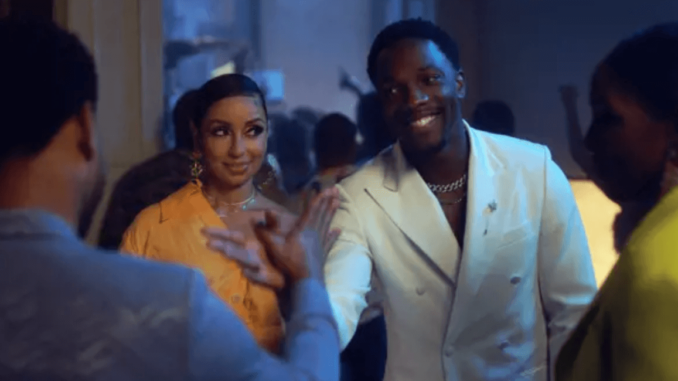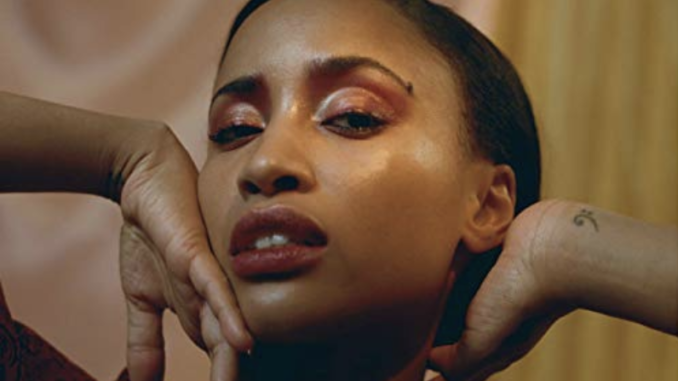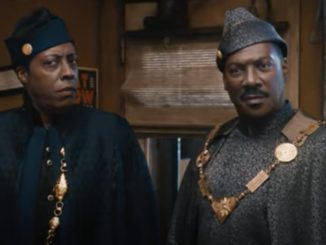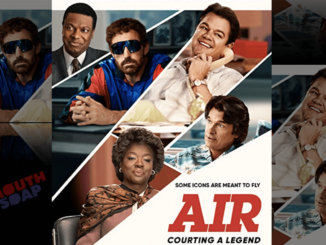
When LeBron James’ Springhill Entertainment publicly announced that the trailblazing production company would be taking on a modern-day reboot of the classic 1990s zeitgeist film House Party, a unanimous groan ricocheted over the radio frequencies providing life support to toxic social media platforms. Not because the idea was lame, but because those who are entrenched in Black culture and hip hop, and were alive to see the original films “overstood” the great challenge set before the chosen ones involved in the reboot.
At the time that Reginald Hudlin, the legendary mastermind behind Boomerang, Bebe’s Kids, The Great White Hype, The Bernie Mac Show, and Black Panther before it was a Disney/Marvel box office franchise, released the original House Party in 1990 it was a groundbreaking phenomenon for Black entertainment.
The roster of raw talent featured in the original included the late Robin Harris, Martin Lawrence, the late John Witherspoon, Tisha Campbell, A.J. Johnson, the late Anthony Johnson, George Clinton, and Clifton Powell, to name a few. The magnitude of comedic energy was undeniable. That, coupled with the intricate awareness of Black culture as it stemmed directly from the community — not the stereotypes of social media — added to the allure of the film.
Fast-forward to the Calmatic-directed version, starring Till actor Tosin Cole and The Chi actor Jacob Latimore, and it’s apparent that the House Party brand of the ’90s was used as bait to draw nostalgic viewers in before quickly detouring to a different direction. Watching the film alongside a diverse crowd at a very popular movie theater in Southern California, the reactions to what should have been mic drop moments were disappointingly lackluster except for the occasional simultaneous laugh out loud chuckles from me and a couple of other moviegoers.
The pillars of this project, such as scribes Stephen Glover, 34, and Jamal Olori, alleged 35, had millennial written all over the plot with specific references to the mid to late 1990s and early 2000s. To my joy, there were massive surprise cameos (spoiler alert), including Dallas Mavericks owner Mark Cuban, “Movin’ On” singer Mya, and “Slow Motion” rapper Juvenile, which provided for electrifying thrills in the fast-paced film, but apparently left some viewers out of the loop.
There were other moments that flew over viewers’ heads. Did no one understand the deadpan comedy of Kid Cudi as he expressed his dislike of people laughing at parties? Or the perfectly executed reference to the iconic Hype Williams film known as Belly? What about the very L.A. specific joke surrounding the janky party bouncer creating the illusion of a “poppin’” party by holding most attendees outside in a line — trivia, the “L” in L.A. stands for lines because there are lines everywhere, the club, In-N-Out, CVS, and the 101 highway!?
The reason why all these contextual subtleties matter is because if the audience doesn’t get it, then they are effectually excluded from the inside jokes and value that these moments offer. That results in less fun.
The audience is not solely accountable for the lukewarm reception, however. There were a few quirky scenes that were lost on me as the film struggled to commit to a comedy style, switching between surreal humor with the help of a high koala bear to high comedy with the satirical taunting by the wealthy.
The latter is a great example of poor timing as the nation’s dwindling middle class comes to terms with a silent recession that has agitated the attitudes of normally receptive moviegoers. In other words, people are mad. People are jealous. Rubbing wealth in their faces not only lacks relatability, but the smug boldness of making fun of secret society conspirators makes the film an easy target for critique — that may be a good thing, at least critics are paying attention. Meanwhile, the continuous reference to the hip hop supergroup Migos constantly brings recollection of Takeoff’s unfortunate demise in a film that’s suppose to make viewers laugh.
Even with these small blunders, the film manages to stand on its own. Did it live up to the impact of the original House Party? Not entirely. There could’ve been more emphasis on the hip hop of it all, from the dance scene to the fashions, but the reboot deserves a chance to be just what was intended, a lighthearted journey to take the edge off.
Dance Scene In ‘Original House Party’
Not to omit the mesmerizing charm of Mr. Tosin Cole who perfectly channeled the vision of a contemporary Play, originally embodied by actor Christopher Martin. Or the adorable sensibilities of Latimore, who honestly is way cooler than Christopher Reid’s dorky character, Kid. The awesomeness of King James (LeBron James) was another unforgettable moment to behold, and in a sense, a saving grace for the reboot.
Other worthy mentions include D.C. Young Fly, who added to the youthful fun of the film, and Melvin Gregg, who spiced scenes up with his hot-headed outbursts. It was also refreshing to see the beautiful Mya grace the screen, although it felt like she could’ve been utilized more than just as a pretty face. Moving on (pun intended), there’s something to be said about the way Venus, a character played by thespian Karen Obilom (The Wood), was carefully handled to remain regal and respectable — they didn’t want that smoke!
When it comes to the nitty gritty, House Party (2023) is a good attempt to bring joy to the masses, and will fare well among those who get the jokes and watch the film with no preconceived notions stemming from the Hudlin-inspired versions.
Side note, let this be a message to the studios. Stop making safe bets with reboots and remakes based on IP libraries and already established film franchises, and let talented Black creators make original content. Trust the process.
House Party (2023) is in theaters now.



